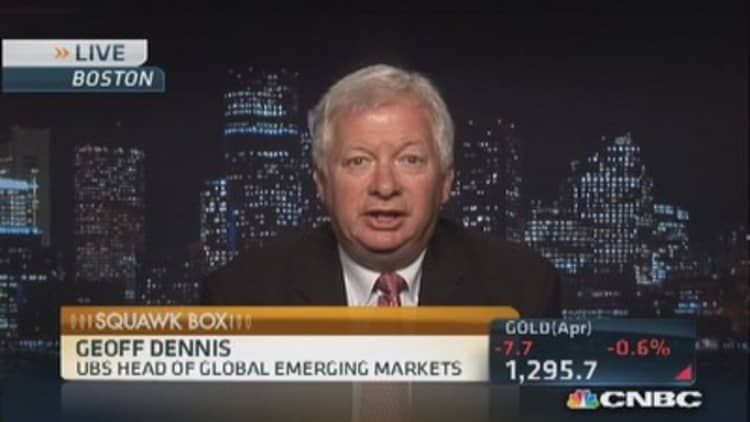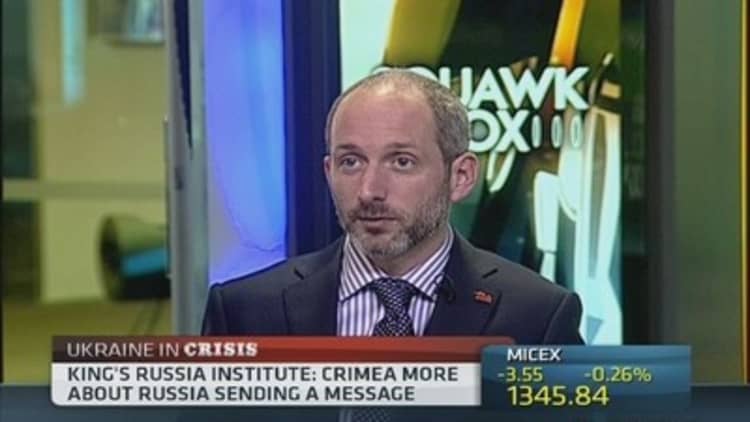Concerns that the crisis in Crimea could hit Russia's economic prospects were raised this week by both the World Bank and the country's own economy minister. But it seems that the country's finances were already on shaky ground thanks to frail domestic demand and lack of structural reforms.
The World Bank has forecast the Russian economy could contract by up to 1.8 percent in 2014, depending on the shock to economic and investment activity following the country's annexation of Ukraine's Crimea region this month.
(Read more: Ukraine and IMF announce $14-18 billion bailout)
"Growing tension in Ukraine and Russia since late February has so far caused relatively limited disruption in global financial markets, but escalation of geo-political tension between Russia and the European Union and the U.S. remains a key risk," said the World Bank in its biannual report on Russia on Wednesday.
Following on from the World Bank. Russian Economy Minister Alexei Ulyukayev slashed his outlook for the economy on Thursday, forecasting growth could slow to around 0.6 percent in 2014, down from 1.3 percent last year. The Economy Ministry had previously predicted growth of 2.5 percent for this year.
Ulyukayev cited the outflow of international capital from Russia as the reason behind the declining outlook. This follows the annexation of Crimea and accompanying concerns about the impact of Western sanctions.
"If we assume in the first quarter capital outflow was $60 billion ... then (it) will reach around $100 billion for the whole year," Ulyukayev told an investment conference, according to Reuters.
(Read more: No vodka for Obama: Russians impose joke 'sanctions')

Ulyukayev's estimate could prove optimistic – Capital Economics estimated capital outflows at $70 billion for the first three months of the year, higher than for the whole of 2013.
Meanwhile, Russia's benchmark MICEX stock index is down over 6 percent since the start of March and the Russian rouble has fallen around 1.1 percent against the U.S. dollar.
However, Capital Economics noted that the Russian economy was struggling even prior to events in the Crimea.
"The Russian economy was extremely weak even before the crisis on the Crimean peninsula escalated," said Capital Economics economists led by Neil Shearing in a research note on emerging Europe published on Wednesday.
"Consumer spending remains subdued by past standards. More worryingly, investment – which is needed to ease capacity constraints in the economy – contracted by 3.5 percent year-on-year in February, after a drop of 7 percent year-on-year in January," they noted.

The World Bank highlighted that Russia had struggled to navigate the economic downturn, with growth slowing in 2013 even as the global economy began to improve. It added that investor confidence in Russia was also deteriorating pre-crisis due to concerns about its overreliance on large investment projects and sizeable oil revenues to fuel growth.
"Russia is struggling to find its footing," said the report. "Recent events around the Crimea have compounded the lingering confidence problem into a crisis of confidence and more clearly exposed the economic weakness of this growth model."
—By CNBC's Katy Barnato. Follow her on Twitter: @KatyBarnato

